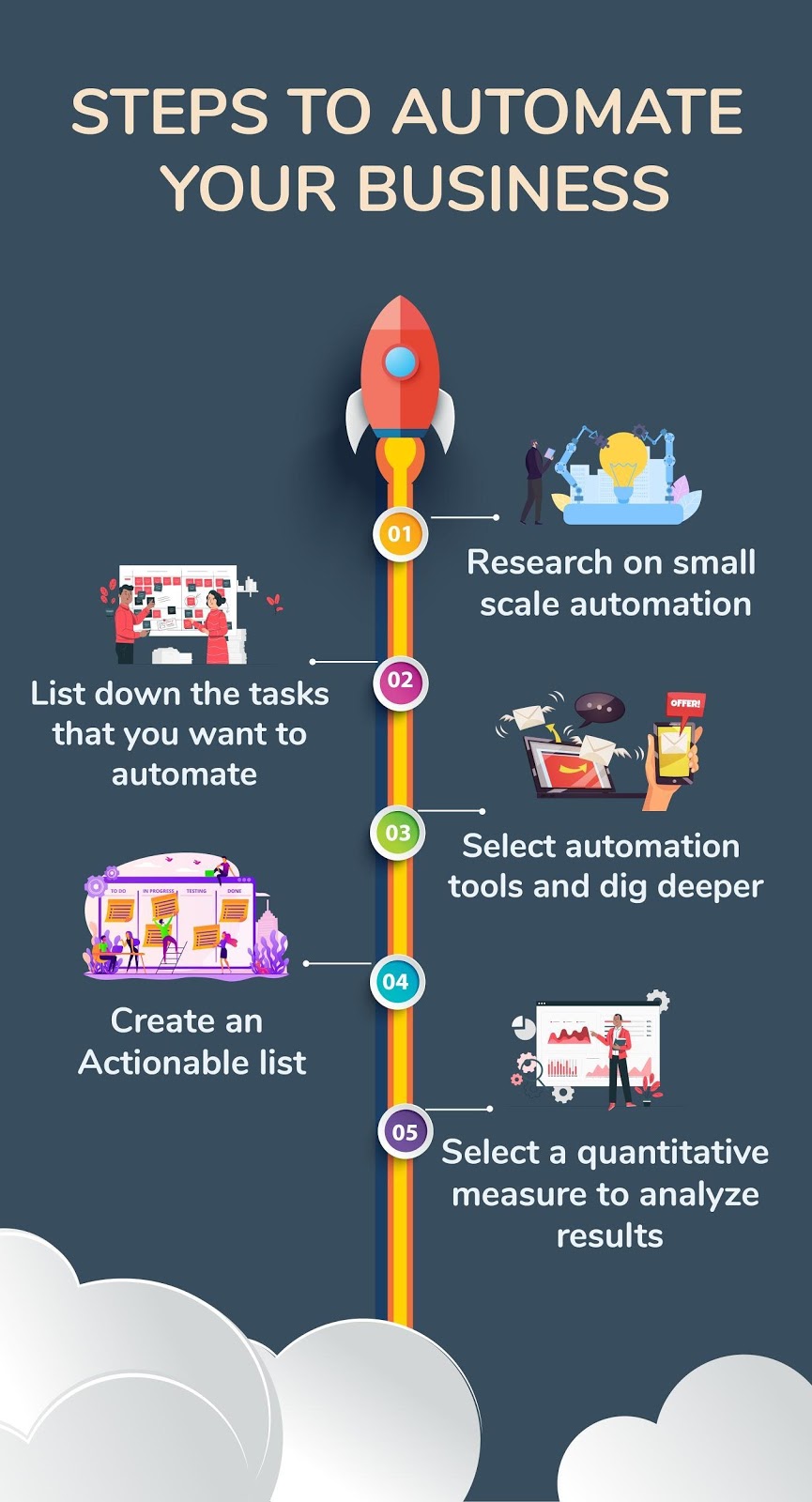Why You Should Automate Your Business

In today's fiercely competitive market, businesses are constantly seeking ways to enhance efficiency, reduce costs, and improve customer satisfaction. Automation, once a luxury reserved for large corporations, is now an accessible and essential strategy for businesses of all sizes to thrive and remain competitive. The digital revolution is reshaping industries, and businesses that fail to adapt risk falling behind.
This article delves into the compelling reasons why automating your business operations is no longer optional but a strategic imperative for sustained growth and success. We'll explore the tangible benefits of automation, from streamlined workflows and reduced errors to improved customer experiences and increased profitability. Moreover, we'll address common concerns and misconceptions surrounding automation, highlighting its accessibility and adaptability to various business needs.
Boosting Efficiency and Productivity
One of the most significant advantages of automation is its ability to dramatically improve efficiency and productivity. By automating repetitive, time-consuming tasks, employees can focus on higher-value activities that require creativity, critical thinking, and strategic decision-making. This leads to increased output, faster turnaround times, and a more engaged and productive workforce, according to a 2023 report by McKinsey & Company.
Automation can also significantly reduce errors and improve accuracy. Human error is inevitable, particularly when dealing with tedious and repetitive tasks. Automated systems, on the other hand, are programmed to perform tasks with precision and consistency, minimizing the risk of mistakes and ensuring data integrity.
Cost Reduction and Increased Profitability
While the initial investment in automation may seem daunting, the long-term cost savings are substantial. By automating tasks, businesses can reduce labor costs, minimize waste, and improve resource utilization. This ultimately leads to increased profitability and a stronger bottom line, a point repeatedly emphasized by the U.S. Small Business Administration (SBA) in their resource guides.
Furthermore, automation can help businesses optimize their supply chains and inventory management, reducing storage costs and minimizing the risk of stockouts or overstocking. Efficient resource allocation translates directly into cost savings and improved cash flow.
Improved Customer Experience
In today's customer-centric world, providing exceptional customer service is crucial for building brand loyalty and driving growth. Automation can play a vital role in enhancing the customer experience by streamlining processes, providing faster response times, and personalizing interactions.
For example, chatbots can provide instant support to customers 24/7, answering common questions and resolving issues quickly and efficiently. Automated email marketing campaigns can deliver personalized messages to customers based on their preferences and purchase history, increasing engagement and driving sales. The Harvard Business Review has published numerous studies highlighting the link between automation and improved customer satisfaction.
Scalability and Growth
Automation provides businesses with the scalability they need to grow and expand without being constrained by manual processes and limited resources. As a business grows, its operations become more complex, and manual processes can become bottlenecks that hinder progress.
Automated systems can handle increased workloads and adapt to changing business needs, allowing businesses to scale efficiently and effectively. This scalability is crucial for businesses looking to expand into new markets, launch new products, or increase their customer base.
Addressing Common Concerns
One of the common concerns surrounding automation is the fear of job displacement. However, studies have shown that automation typically leads to job transformation rather than job elimination. While some routine tasks may be automated, new roles emerge that require human skills such as creativity, problem-solving, and critical thinking.
Another concern is the perceived complexity and cost of implementing automation. However, with the rise of cloud-based solutions and user-friendly tools, automation is becoming increasingly accessible and affordable for businesses of all sizes. Many vendors offer scalable solutions that can be customized to meet specific business needs.
Looking Ahead
The future of business is undoubtedly intertwined with automation. As technology continues to evolve, automation will become even more sophisticated and integrated into various aspects of business operations. Businesses that embrace automation will be well-positioned to thrive in the digital age, while those that resist risk falling behind.
Investing in automation is not just about improving efficiency and reducing costs; it's about future-proofing your business and ensuring its long-term sustainability. By embracing automation, businesses can unlock new opportunities for growth, innovation, and success in an increasingly competitive landscape.


















